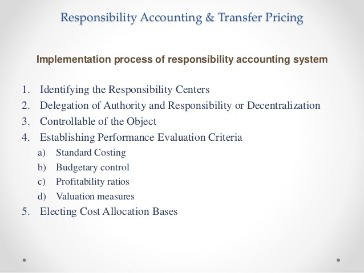
This is done to test if the debits match the credits after the adjusting entries are made. This is the final step before the preparation of the business’ financial statements. Business transactions are recorded in a journal (also known as Books of Original Entry) in a chronological order using the double-entry bookkeeping system. The importance of accounting for small businesses can’t be underestimated. Whether you’re starting a brand-new business or you have some experience under your belt, creating a solid accounting plan can help you monitor and maintain your financial health. If you follow the tips we’ve laid out above, you’ll likely be able to focus some of your time on other important facets of your business.
The requirements of small business accounting come down to a handful of best practices and essential reports, which you can do manually or with accounting software. Other accounting services small businesses may use include bookkeeping, strategic business email compromise finance, and tax accounting. If you set up your finances with accrual-basis accounting, you’ll record financial transactions when they occur, not when the money moves accounts. As a small business owner, you have the option of hiring an accountant, recording transactions by hand or using an accounting software to record your business transactions.
Next let’s dive into some practical and actionable small business accounting tips. Accountants ensure that you’re registered for the right programs, from GST/HST to Payroll, at the optimal time. So, if you want your business to grow and avoid any nasty surprises, good accounting isn’t just a need – it’s a must. First up, let’s take a second to understand what small business accounting actually is. Creating a budget for expenses like office supplies, inventory and repairs and maintenance can help your business function efficiently. Regular expense tracking will give you a better idea of how much you’re spending and help you devise money management strategies.
Mục Lục Bài Viết
Accounting vs Bookkeeping

For brand new businesses, it may not seem like a good use of startup funds to hire an accountant. However, an accountant can play an important role, even in the startup phase. In Canada, bookkeeping also includes the management and submission of various sales taxes like GST, HST, and PST. Depending on your business, you may also need to keep track of other taxes like sales tax, payroll remittances or even excise tax. You’ll need to show them your income and expenses, and then pay your taxes. If you mess this up, you could face the hassle of dealing with an auditor and potentially incur penalties and what is overhead cost and how to calculate it interest.
- They conduct the necessary due diligence, ensuring the financials and asking price are sound.
- Using a comprehensive bookkeeping software program often becomes easier over time.
- Issuing invoices to clients or customers for services rendered or products sold is another key task.
When you stay on top of your bookkeeping and accounting processes, you empower yourself to make wise financial decisions. With these basic accounting tips for small-business owners under your belt, we’re sure you have the tools you need for small-business success. People who aren’t small-business accountants or often use bookkeeping and accounting interchangeably, but they actually mean two different things. Accounting means not just keeping financial records but also analyzing and interpreting financial data so you can make wise fiscal decisions.
Unadjusted Trial Balance
Start with an unadjusted trial balance, which can help locate any out-of-balance accounts. You might choose to use document management software to keep track of key financial information and statements. You’ll want to periodically back up your files and ensure that you’re adhering to security protocols so your information isn’t compromised.
Accounting Tips for Small Businesses
By delegating financial tasks to a professional, you gain not only time, but also the assurance of accuracy and efficiency. Beyond numbers, accountants often provide strategic guidance for business owners navigating the complexities of entrepreneurship. Bookkeepers often manage payroll systems and ensure employees are paid accurately and on-time. Along with running payroll, bookkeepers manage the additions of new employees, removal of departed workers and the filing accounting software 2020 of ROEs and T4s. The bread and butter of bookkeeping is logging every financial transaction your business makes, such as sales, purchases, and payments. It shows you where you are, what turns to take, and even warns you about roadblocks like low cash flow or tax deadlines.
Accounting for Small Businesses: A Comprehensive Guide to Financial Management
Then, you can get back to doing what you love with confidence in your financial future. Shareholders’ equity represents a company’s net worth — the amount shareholders would receive if they liquidated all assets and repaid all debts. For example, a company with $10,000 in assets and $2,000 in liabilities would have an $8,000 shareholders’ equity. They prepare your financials, facilitate discussions with potential buyers, and ensure that the sale is structured to maximize your financial gain.
If it’s your bookkeeper or accountant doing the work, the confusion can lead to extra work and make your bill much higher. If you’re looking for an accountant that specializes in small business bookkeeping, accounting and tax, check out Avalon Accounting’s services. An accountant handles your tax filings and can help ensure you remain compliant when sales taxes and payroll remittances become complex. Where bookkeeping lays the foundation, accounting builds upon it to offer a more comprehensive view of a business’s financial health. When you’ve just started and have limited funds, you might consider handling your accounting activities yourself. However, once the business has sufficient discretionary funds, it’s best to outsource these tasks to an accountant or a bookkeeper.

